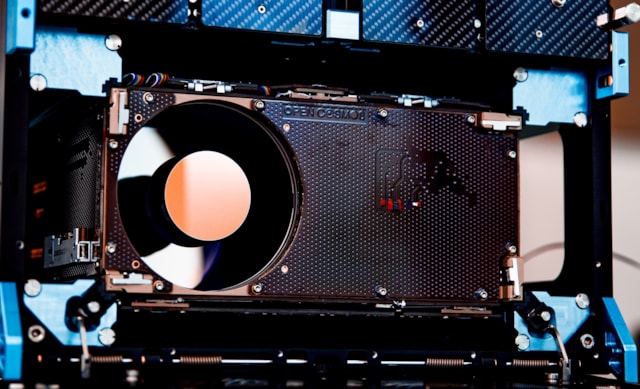The Phisat-2 satellite, built in the UK by Open Cosmos, launched successfully from Vandenberg Space Force Base, California.
The Phisat-2 satellite is demonstrating the potential for artificial intelligence (AI) to support satellite Earth observation missions.
The UK Space Agency supported the development of the satellite through the European Space Agency’s (ESA) Earth observation programme.
How AI can help overcome Earth observation challenges
A major challenge of Earth Observation is the volume of data being produced by the satellites, which is expected to grow exponentially.
The Phisat-2 satellite is designed to enhance the efficiency of satellite data processing by using onboard advanced AI algorithms.
This AI is designed to automatically detect and discard any images where clouds obscure the Earth. Since this process is done on board, only clear and usable images are sent back to Earth.
This, combined with deep image compression technologies to reduce data volume, is a vital step in Earth observation data management and will optimise downlink time.
Phisat-2 highlights the UK’s leading role in new innovations
The UK’s Space Agency’s involvement in the Phisat-2 satellite highlights the UK’s ambition to take a leading role in space innovation and AI development.
The AI industry contributes £3.7 billion each year to the UK economy and employs more than 50,000 people. The UK space sector employs a similar number (52,000) of people and has been the leading destination for private space investment in Europe since 2015, attracting 17% of the global total.
Harshbir Sangha, Missions and Capabilities Delivery Director at the UK Space Agency, said: “Congratulations to Open Cosmos on the successful launch of the Phisat-2 satellite.
“This is a great example of how UK companies are driving innovation by exploiting new technologies like AI to increase the speed and efficiency of data processing – using the unique vantage point of space to deliver valuable insights into life on Earth.”
Sangha added: “The UK is a leading member of the European Space Agency, and we’re playing a major role in the development of future Earth observation missions in partnership with industry and academia.”
Deployment was successful
Approximately one hour after the launch of the SpaceX Falcon 9 rocket, Open Cosmos received confirmation of the successful deployment of the Phisat-2 satellite.
Contact was made over Svalbard ground station in Norway and the flight team began downloading telemetry data from the satellite.
“The launch of Phisat-2 is a game changer for Earth observation. With its advanced AI applications and real-time data processing capabilities, Phisat-2 will provide invaluable insights for disaster response, maritime monitoring and environmental protection,” explained Jacob Bullard, Mission Manager in Operations at Open Cosmos.
He concluded: “This mission exemplifies our commitment to pushing the boundaries of space technology and delivering impactful solutions.”









